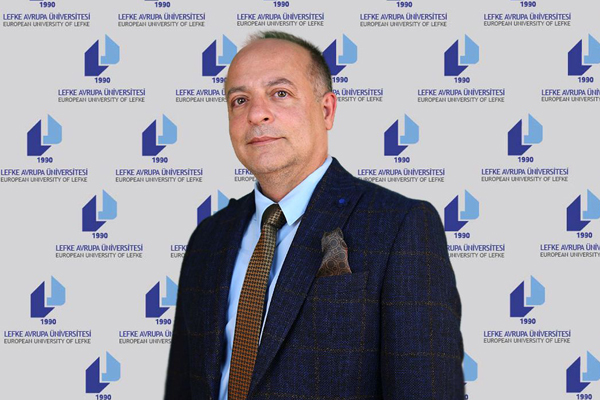EUL Academic Muhtaroğlu Highlights the Importance of Body Donation on World Anatomy Day

“Body donation is one of the greatest services to science and humanity”
Assistant Professor Dr. Musa Muhtaroğlu, a faculty member at the Faculty of Medicine of European University of Lefke (EUL), made a statement on the occasion of World Anatomy Day. Muhtaroğlu mentioned that World Anatomy Day is a special day celebrated annually on October 15th in honor of Andreas Vesalius, who laid the foundation of modern anatomical science. Muhtaroğlu stated, “Vesalius is renowned for his detailed studies of the human body in the 16th century and emphasized the contributions of direct examination of the body to medical science. Vesalius’ work established cadaver dissection as the ‘gold standard,’ which is still used in medical education today.”
Muhtaroğlu further noted that World Anatomy Day was declared by the International Federation of Associations of Anatomists (IFAA) in 2019 to honor Vesalius’ scientific contributions. He added, “Through his bold research, Vesalius placed cadaver examination at the heart of medicine, allowing for a detailed understanding of human anatomy. Since then, body donation has continued to play a critical role in medical education and research.”
Drawing attention to body donation, Muhtaroğlu continued, “Body donation allows medical students to realistically learn human anatomy. Cadavers provide future doctors with the opportunity to better understand the complex structures and functions of the human body. This way, students can learn the detailed structure of organs and muscles through dissection and become more competent in medical interventions. Additionally, body donation is not only essential for medical education but also for the development of surgical techniques and the improvement of clinical practices.”
Muhtaroğlu emphasized that body donations help make significant advances in research centers, particularly in important fields like cancer, neurological diseases, and cardiovascular disorders. Donated bodies play a crucial role in understanding the mechanisms of diseases like Alzheimer’s and Parkinson’s. The medical world has the opportunity to develop new treatment methods thanks to the knowledge gained from these donations, which helps save more lives.
He also stated, “Body donation is protected by strict ethical and legal regulations worldwide. In many countries, donors make this decision during their lifetime, and medical institutions handle the donation process with respect. For example, in the United Kingdom, the Human Tissue Act 2004 ensures that body donations are carried out in accordance with ethical standards. In Turkey, body donation is regulated by the Organ and Tissue Transplantation Law No. 2238. In every country, the processes following donation are carefully managed, and the contribution of the donor is treated with respect.”
Muhtaroğlu described body donation as “one of the most sacred ways to serve humanity beyond life.” He added, “Individuals who donate their bodies to science contribute to future medical discoveries and life-saving treatments. Families feel peace and pride in knowing that their loved one’s contribution benefits society. Every donation aids in the advancement of medical science and serves as a legacy left to the scientific community.”
World Anatomy Day is an opportunity to remember the historical importance of anatomical science and the role of body donation in the medical world. This meaningful donation is one of the greatest services to both the future of medical education and humanity.
